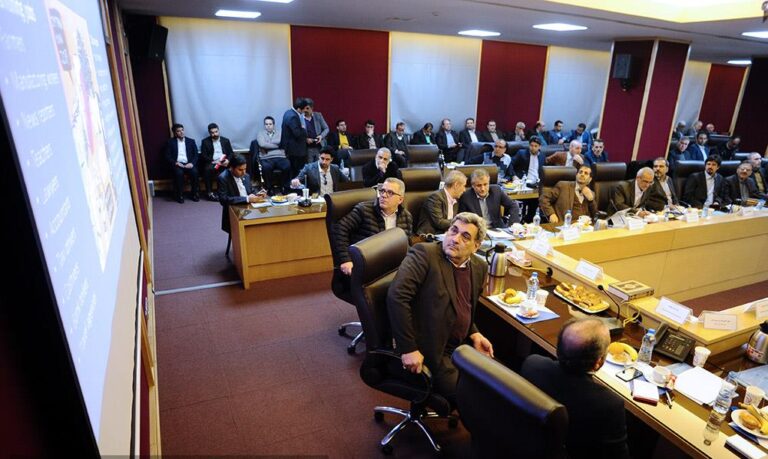Iran, with its rich history and diverse culture, presents a unique blend of tradition and modernity that significantly influences its business landscape. Understanding Persian traditions is crucial for foreign investors and entrepreneurs aiming to navigate the complexities of Iran’s market. This article delves into essential Persian traditions, their relevance to contemporary business practices, and how these cultural nuances shape commercial interactions in the country.
The Historical Context of Persian Traditions
Persian culture, which dates back thousands of years, is renowned for its literature, art, architecture, and customs. This tradition is deeply intertwined with family values, hospitality, and respect for individuals, elements inherited from Iran’s ancient civilizations, which include the Elamites, Medes, and Persians. The enduring legacy of these historical narratives informs current social behaviors and business manners in Iran.
Family Values
Family is a cornerstone of Iranian society and plays a pivotal role in business dealings. Many businesses in Iran are family-owned, which means decisions are often made collectively, taking into account the welfare of the family as well as the business. For foreign investors, acknowledging and respecting these family-oriented practices can help build trust and establish fruitful partnerships.
Investors should recognize the significance of family gatherings in business relationships. These social events allow for informal interactions that can lead to solidifying business ties. Understanding the importance of family and incorporating these values into business discussions can lead to a more successful engagement in the market.
Importance of Trust and Reputation
In Persian business culture, trust is paramount. Iranians often prefer to do business with those they know personally or receive recommendations from trusted sources. Foreign companies should focus on building relationships over time and strive to establish a reputation for reliability and integrity. This may involve attending social functions and networking events where they can meet potential business partners in more relaxed settings.
Moreover, patience is vital in developing these relationships. Business decisions may require multiple discussions, and rushing conversations can be viewed negatively. By taking the time to nurture these connections, foreign investors can enhance their credibility and establish long-term collaborations.
Hospitality and Social Interactions
Persian hospitality is celebrated worldwide, and it extends into business practices. When conducting business in Iran, expect to be welcomed warmly and offered refreshments, often as a sign of goodwill. It is customary for hosts to show generosity and care for their guests, reflecting the cultural value placed on hospitality.
Foreign investors are encouraged to reciprocate this hospitality when engaging with Iranian partners. Simple gestures such as inviting local partners to lunch or incorporating traditional Iranian meals into business meetings can demonstrate appreciation and respect for local customs, further strengthening business relationships.
Negotiation Styles
Negotiations in Iran reflect a balance between assertiveness and indirectness. Iranians tend to approach negotiations with a level of subtlety; direct confrontation may be frowned upon. Understanding this nuanced style can help foreign businesses navigate negotiation scenarios more effectively.
Maintaining an open, respectful dialogue, and being prepared for counteroffers or negotiations that may require multiple stages of discussion is essential. Taking a more patient approach can help foreign investors secure favorable agreements while respecting local customs.
The Role of Ṣūfī Influences
Persian literature, philosophy, and poetry have been shaped significantly by Ṣūfī thought, which emphasizes spiritual values and the importance of emotions in human interactions. This influence can be seen in the way Iranians approach business, often intertwining formal dealings with emotional intelligence and empathy.
This perspective encourages a holistic view of business relationships, where financial objectives are balanced with ethical considerations, social duties, and environmental impacts. Modern businesses in Iran often seek to align their corporate strategies with these values, opening avenues for ethical entrepreneurship that resonates with today’s conscientious investors.
Modern Business Practices Reflecting Tradition
While Iran is moving toward modernization, its businesses often embody a blend of traditional practices and contemporary innovations. The growing tech startup scene, for example, respects classical values while embracing modern approaches to entrepreneurship. Many start-ups are run by young Iranians who infuse their traditional knowledge with innovative ideas, fostering a dynamic business environment.
Moreover, trends in sustainable business practices, ethical sourcing, and corporate social responsibility are gaining traction among Iranian companies, signifying a shift towards more globalized business principles while maintaining local traditions.
Learn more about all IRAN Business Gate services. Click here for detailed information!
Conclusion
In summary, understanding Persian traditions is essential for effectively engaging with the Iranian market. The interplay of family values, trust, hospitality, and emotional intelligence plays a critical role in shaping modern business practices. These elements reflect not only the historical richness of Persian culture but also their relevance in contemporary commerce.
At Iran Business Gate, we acknowledge the significance of these cultural insights for foreign investors and businesses. Our services are designed to help you navigate these traditions while entering the Iranian market, ensuring that you build meaningful relationships and achieve sustainable success. We are here to support individuals and businesses interested in exploring the opportunities Iran has to offer.
Let's Talk Now!
Your thoughts and questions matter to us! At IRAB Business Gate, we are eager to hear from you.



